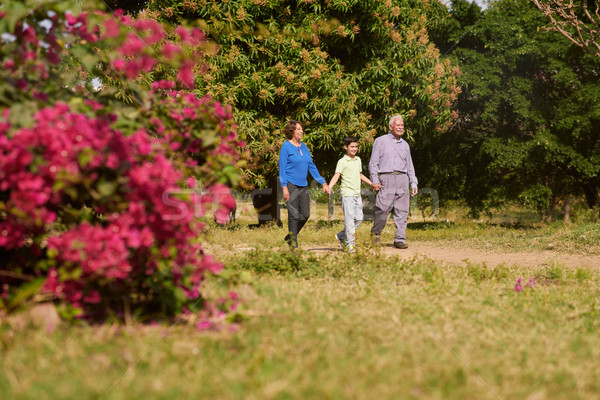Strict Standards: Non-static method Pagery::getPagerData() should not be called statically in /home/joyche5/public_html/healthMore.php on line 149
Some tips based on scientific researches for happier and fulfilling life. These are small things that most of us can reasonably achieve in the New Year so that we may improve our mental and physical well-being.
1. Be Active:
Many studies have proved the role of physical exercise not only in keeping us fit, but also in improving other aspects of our physical and mental health. A recent study by University of British Columbia, Canada found that women's perception of their own bodies improves after they exercise. The effect appears to be immediate and doesn't depend on mood or actual state of fitness after exercising. Numerous studies have shown that exercise can counteract and prevent depression, which affects 350 million adults across the world. And, if you're struggling to keep up the motivation to go out for a jog or ride your bike, then there's a simple fix: just focus on doing the kind of exercise that makes you happy. Do it in your own way but keep yourself active!
2. Get Good Night Sleep:
In 2017 many research studies were published that focused on the prominent role played by a good night's sleep in our mental and physical health. Sleep is important in memory consolidation, learning and judgement so that we can react appropriately to events during the day. Studies recommend 8 hours of sleep for average adults and 10-12 hours of sleep for children. The National Sleep Foundation’s 2015 updated recommendations for all ages are:
- Newborns (0-3 months): Sleep range 14-17 hours each day
- Infants (4-11 months): Sleep range 12-15 hours
- Toddlers (1-2 years): Sleep range 11-14 hours
- Preschoolers (3-5): Sleep range 10-13 hours
- School age children (6-13): Sleep range 9-11 hours
- Teenagers (14-17): Sleep range 8-10 hours
- Younger adults (18-25): Sleep range is 7-9 hours
- Adults (26-64): Sleep range 7-9 hours
- Older adults (65+): Sleep range is 7-8 hours
Since people affected by insomnia are twice as likely as their peers to develop depression, it comes as no surprise that a good night's sleep should be a priority in our search for happiness and wellness. One study in UK has shown that happiness and wellbeing of people having good night sleeps are comparable to that of lottery winners. Another study shows that to get a good night sleep you should avoid looking at bright screens (TV, Cell phones, computers etc.) just before bed time.

3. Eat Healthy:
Studies after studies in the past decades have defined what a healthy diet is. A diet rich in fruits and vegetables and low in sugar, salt and fats is generally called healthy diet.
In order to improve fruit and vegetable consumption you can:
- always include vegetables in your meals
- eat fresh fruits and raw vegetables as snacks
- eat fresh fruits and vegetables in season
- eat a variety of choices of fruits and vegetables.
Sugars intake can be reduced by:
- limiting the consumption of foods and drinks containing high amounts of sugars (e.g. sugar-sweetened beverages, sugary snacks and candies);
- and eating fresh fruits and raw vegetables as snacks instead of sugary snacks.
Salt intake can be reduced by:
- not adding salt, soy sauce or fish sauce during the preparation of food
- not having salt on the table
- limiting the consumption of salty snacks
- choosing products with lower sodium content.
Fat intake can be reduced by:
- changing how you cook – remove the fatty part of meat; use vegetable oil (not animal oil); and boil, steam or bake rather than fry;
- avoiding processed foods containing trans fats; and
- limiting the consumption of foods containing high amounts of saturated fats (e.g. cheese, ice cream, fatty meat).

4. Spend More Time Outdoors:
Studies have shown that to feel happier you should spend more time with nature. One study shows that green spaces make us happy, and, conversely, when we don't have access to nature, we tend to become depressed. A recent experiment conducted by researchers from the University of British Columbia showed that people who took a minute to observe small details in nature and register the emotional impact caused by these felt happier and more connected to their peers. A leisurely walk on its own has been found to have a positive effect on mood. Walking has also been shown to encourage creativity, and one study found that people who engage in creative pursuits every day have a greater sense of well-being. Another way of boosting happiness in 2018, therefore, is to take a walk in your local park and plan a creative activity for that day.

5. Be Kind To Others And To Yourself:
Plenty of research studies in social sciences and humanities have shown that in order to achieve a stronger sense of fulfilment and well-being, you should learn to treat yourself with kindness and then extend that generosity to others. Researchers from the University of Hertfordshire in the U.K. found that, although self-acceptance is a habit that can lead to greater happiness, it is one that very few people have formed. A study conducted earlier 2017 also confirmed that, if we embrace our negative emotions, we are less at risk of perpetuating them and more likely to achieve self-healing. At the same time, the care that we show to others, as well as our degree of gratefulness toward our peers, can influence our levels of happiness. A study from the University of Zurich in Switzerland, showed that generosity is strongly associated with happiness, and we feel more joy when we give. This supports previous research that indicated that volunteer work brings psychological benefits. Remember to just be thankful---thankful to God, thankful to family, thankful to friends, thankful to community. Gratitude for what we have, and for the people in our lives, is another important factor when it comes to mental well-being, leading to more optimism and improved relationships.


Comments







